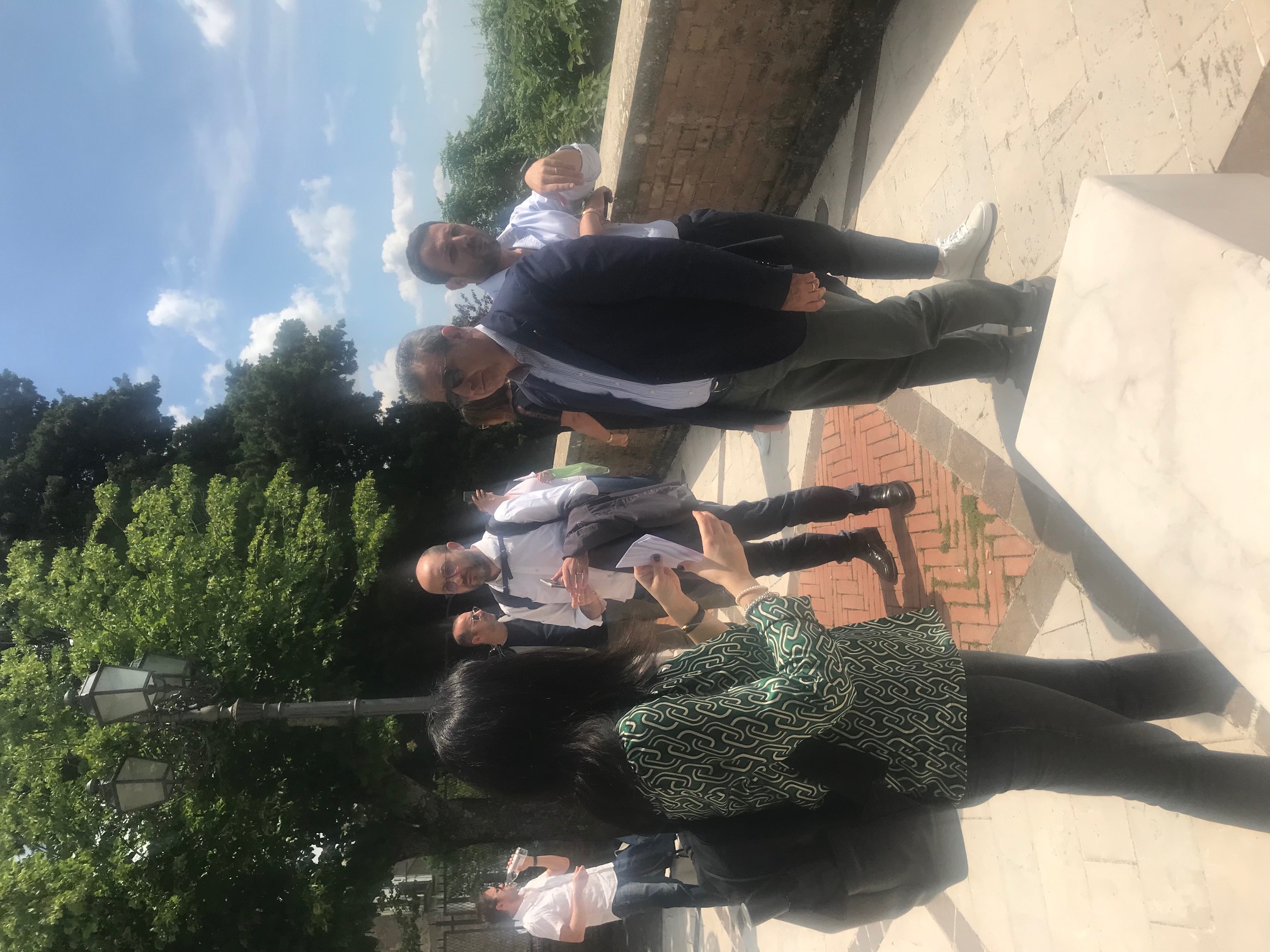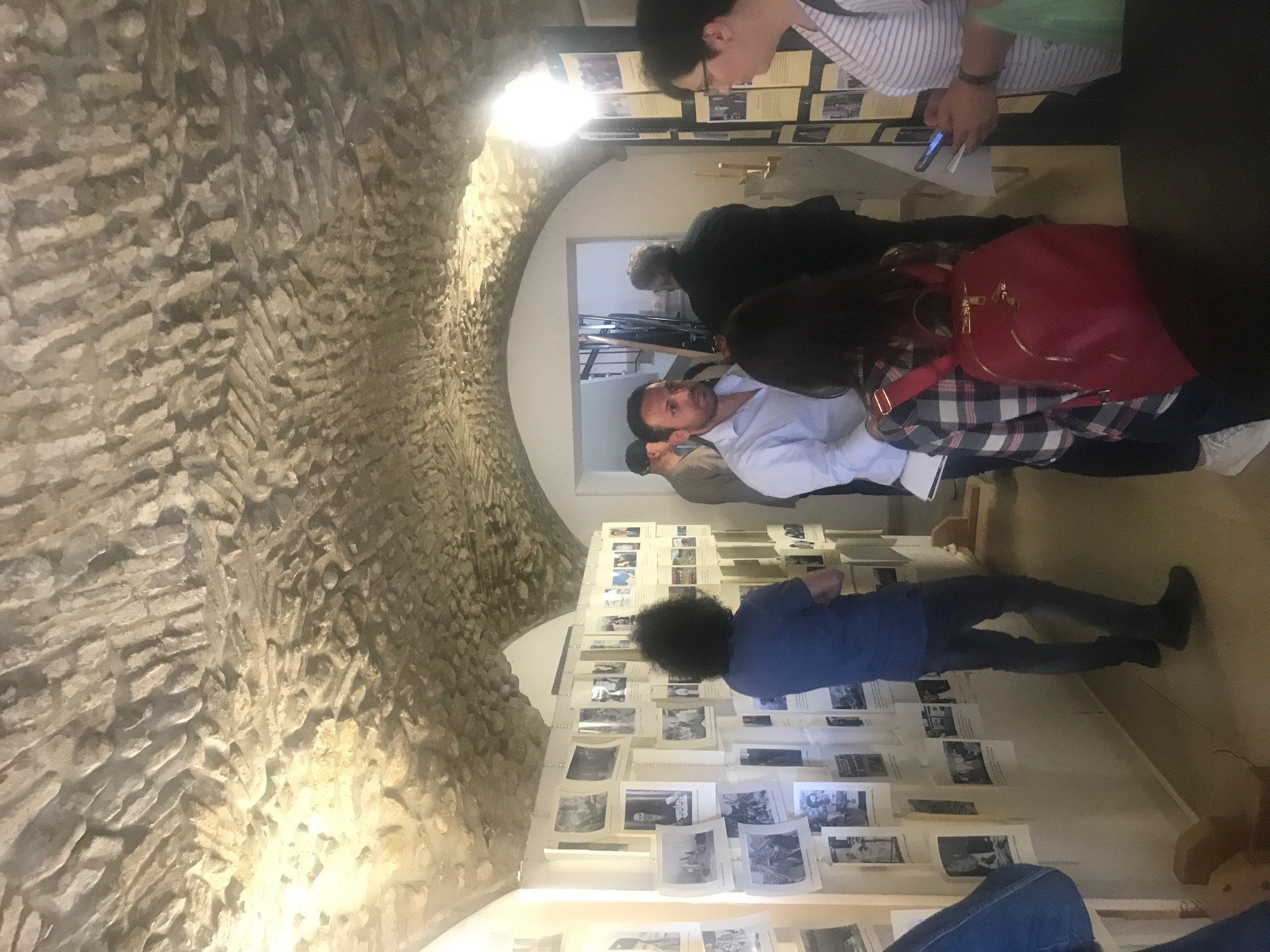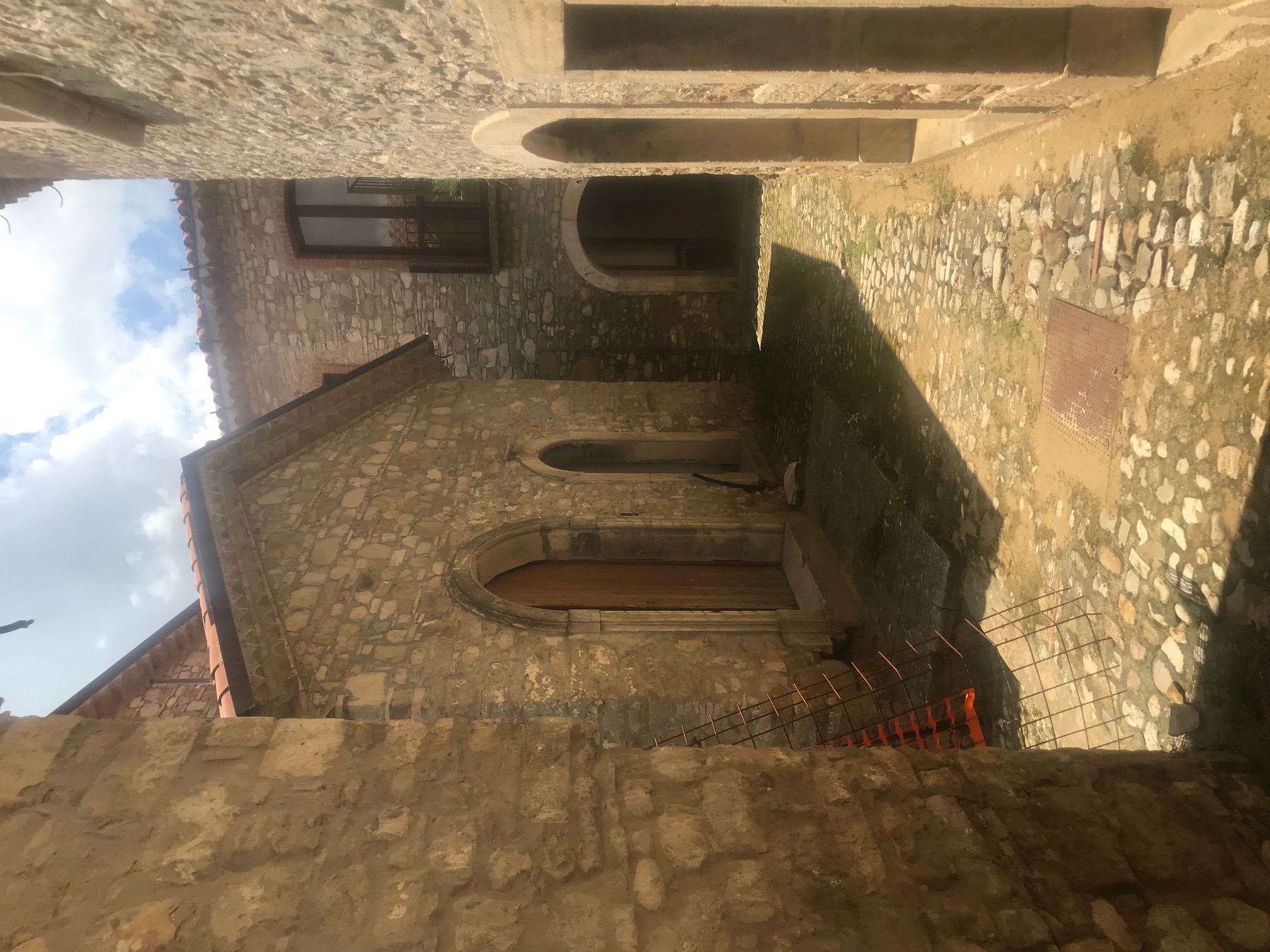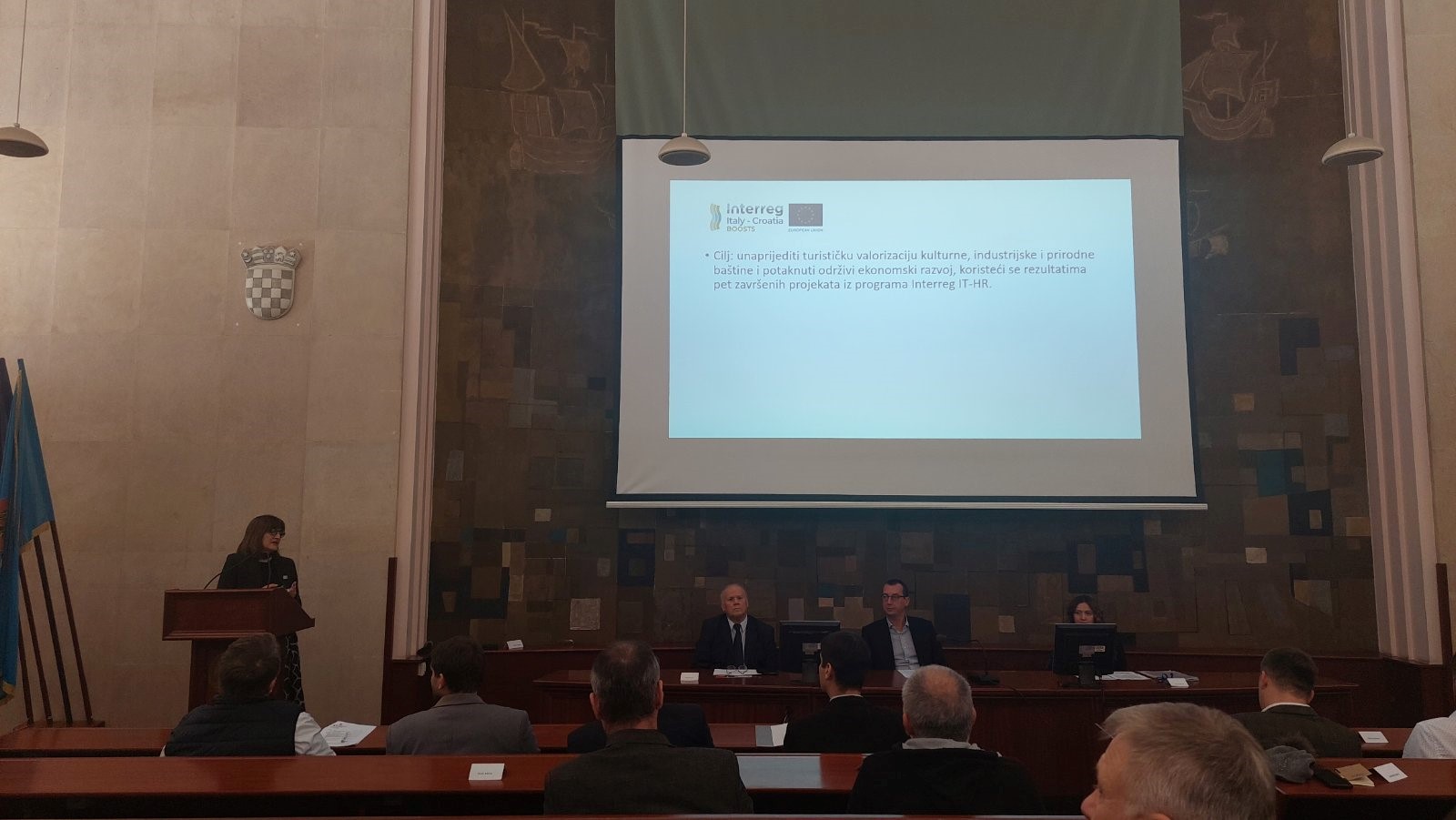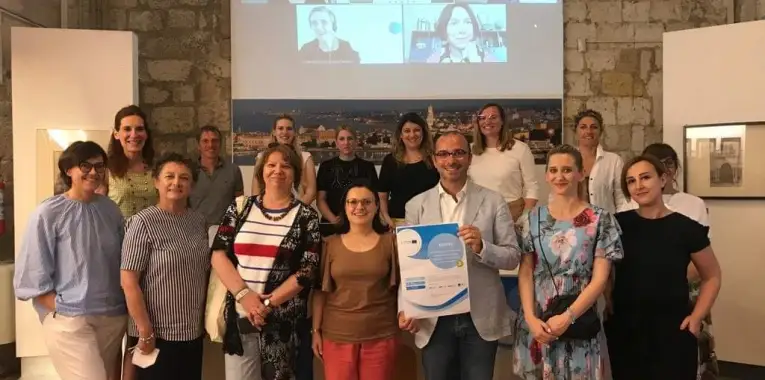On 8th June 2023 the journalist study visit, organized by Tecnopolis, of the historical village Rione Fossi of Accadia (Foggia-Italy) took place, in cooperation with Puglia Region and ASSET Puglia, within the framework of the BOOST5 Cooperation Project.
The visit presented the project for the redevelopment and regeneration of the historic village Rione Fossi of Municipality of Accadia, which with an investment of 22 million euro, will transform Accadia into a village of culture and tourist accommodation. The project has been chosen - the only one in Puglia - among the 20 Italian municipalities that will be able to draw on funding from the Borghi call, financed by the National Recovery and Resilience Plan (NRRP).
The Fossi area, whose caves date back to the Neolithic period, preserves traces of both the passage of the Romans with 14 hypogea from pre-Roman times and medieval settlements. Abandoned after the 1930 earthquake, today Accadia is the protagonist of an important opportunity for sustainable and responsible tourism development.
The mayor of Accadia, Agostino Depaolis, gave his warm welcome to the journalists. He told them that within 2026 an international training center will be built in Accadia to host students and scholars in the fields of culture, art, nature, and landscape; a 2.0 hostel with co-working and cycle work areas, for temporary residents and digital nomads and for tourists interested in the paths of Dauni hills; and a widespread hotel that will enhance 52 housing units in the Fossi district. "An ambitious project chosen by Puglia Region, among the 20 potential candidates for the PNRR's borghi call," explains Anna Maria Candela, head of the Region's Cultural Heritage Protection and Enhancement Section. It is a project that enhances the deseasonalisation of flows and slow and sustainable tourism and puts the territory and its community at the centre by networking and setting up a system with the whole Monti Dauni area.
Annamaria Annicchiarico, Director of Tecnopolis, BOOST5 lead partner, explains that "the visit of Accadia has been chosen to tell about the sustainable tourism experience and share it with the European project partners because it is perfectly aligned with Boost5 objectives, which focus on enhancing innovative cultural routes that favor the relocation of tourist flows towards lesser-known attractions.
Boost5 brings together and valorises the best results achieved by 5 cooperation projects, ATLAS, REVIVAL, TEMPUS, UNDERWATERMUSE, and MADE IN LAND, already financed by the European Cooperation Programme Italy-Croatia, with the final objective of sharing a common methodology among the 8 participating partners, in order to ensure the revitalisation of the natural and cultural heritage of the territories involved.
The modern tourist is increasingly looking for outdated formulas of mass tourism and asks for slow mobility services, prefers to move on foot, by bicycle, or on horseback, and wants to live authentic experiences with the people who live in the territories touching the local traditions.
“The role of Asset Puglia, Strategic Regional Agency for the Eco-sustainable Development of the Territory is central in this project, says the director Elio Sannicandro: the redevelopment of the historic Rione Fossi in Accadia, abandoned after the earthquakes of the last century, is an example of the cultural, social and economic regeneration of villages. With its ancient dwellings with underground cavities and the central area of the matrix church (for which international competition is planned for a large art installation in the churchyard), it is an ideal setting for the Apulian pilot project. The planning is underway, and the securing of the area of the ruins has already been contracted out.
Enhancing the cultural heritage also means promoting its potential, improving the conditions for its knowledge, and increasing its collective enjoyment. By fostering the cultural growth of residents and tourists, a healthy economy can be developed, increasing the sustainable development of the territory”.
Breadcrumb
- Home (ITA-CRO)
- Projects (ITA-CRO)
- BOOST5
- News
- Journalist Study Visit "Future in the past - The rebirth of the Fossi quarter of Accadia"
Asset Publisher
The visit presented the project for the redevelopment and regeneration of the historic village Rione Fossi of Municipality of Accadia, which with an investment of 22 million euro, will transform Accadia into a village of culture and tourist accommodation. The project has been chosen - the only one in Puglia - among the 20 Italian municipalities that will be able to draw on funding from the Borghi call, financed by the National Recovery and Resilience Plan (NRRP).

